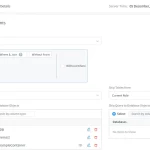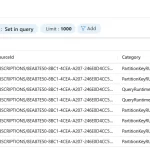
MariaDB is widely adopted in industries where regulatory obligations are strict, such as finance, healthcare, and government. Organizations must ensure that databases comply with frameworks like GDPR, HIPAA, SOX, and PCI DSS.
DataSunrise Compliance Solutions help enterprises align MariaDB environments with these standards through automated monitoring, auditing, masking, and reporting.
Compliance with MariaDB involves more than just security controls; it requires an integrated approach to governance, auditing, and continuous monitoring. Enterprises must protect sensitive data, document accountability, and maintain audit-ready status for regulators. Failure to implement these measures can lead to costly penalties, reputational harm, and loss of customer trust.
To achieve these goals, administrators must adopt proactive compliance strategies supported by automation and intelligent monitoring. Independent resources such as the European Data Protection Board, U.S. Department of Health & Human Services HIPAA Guidelines, and the PCI Security Standards Council provide additional frameworks and best practices to follow alongside MariaDB’s native features and DataSunrise Database Compliance Tools.
What is Compliance?
Compliance in the context of databases means ensuring that the handling of sensitive data follows legal, regulatory, and corporate policies. For MariaDB environments, this translates to implementing strong controls that guarantee data security, transparency, and accountability.
It includes:
- Protecting sensitive data through encryption, masking, and access restrictions.
- Maintaining an accurate database audit trail to log all critical activities.
- Using database activity monitoring to detect suspicious actions in real time.
- Applying policies that align with data security frameworks like GDPR or HIPAA.
- Leveraging data masking technologies to minimize exposure of personal data.
For MariaDB, compliance is both a defensive strategy against cyber risks and a proactive approach to meeting the strict expectations of regulators.
Native MariaDB Compliance Capabilities
Audit Plugin
MariaDB Enterprise provides an Audit Plugin that logs queries, connections, and access attempts. This feature is critical for maintaining an audit trail that regulators expect. It captures who accessed the system, what actions they performed, and when they occurred.
INSTALL SONAME 'server_audit';
SET GLOBAL server_audit_logging=ON;
SET GLOBAL server_audit_events='CONNECT,QUERY';
The audit logs can be forwarded to centralized monitoring systems, such as SIEM platforms, making it easier for compliance officers to analyze activities and prepare audit-ready reports.
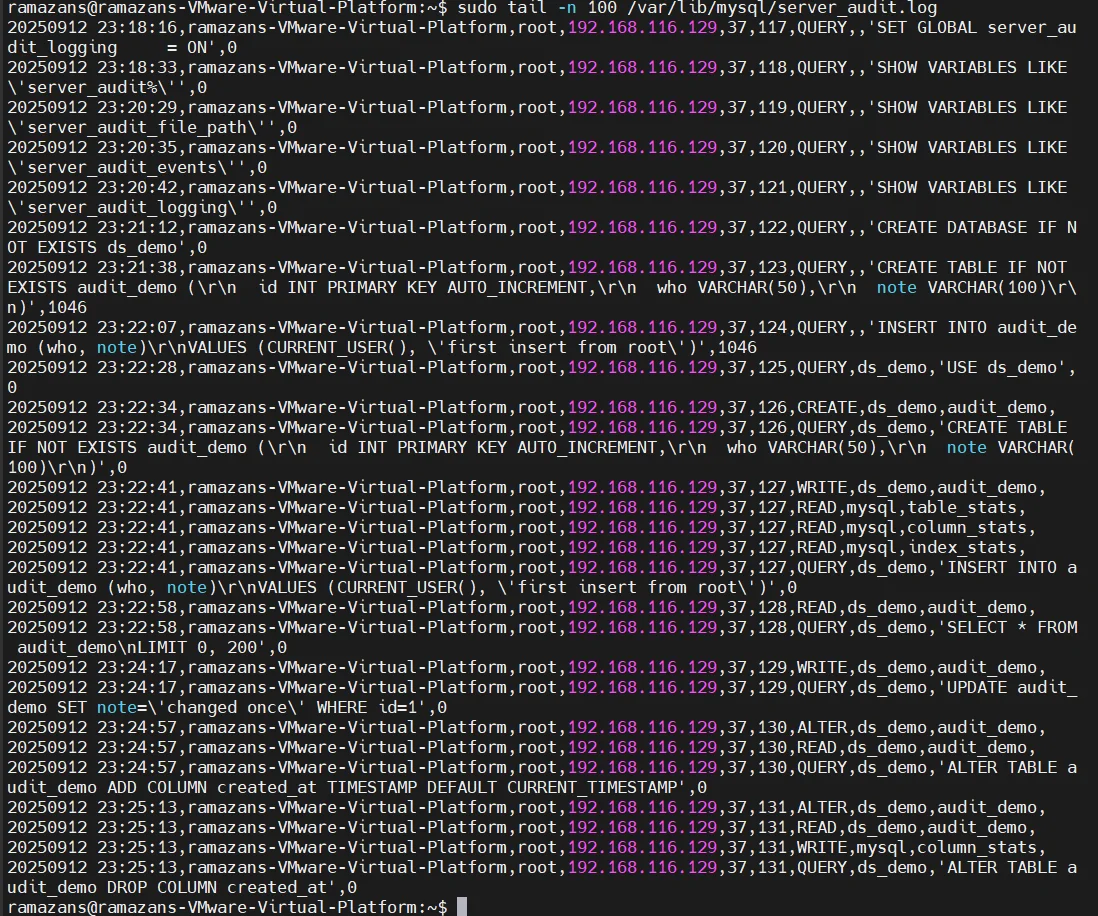
Logging
MariaDB maintains general logs and error logs that capture database activity. General logs track all SQL queries, while error logs capture issues such as failed connections or system errors.
SET GLOBAL general_log = 'ON';
SET GLOBAL general_log_file = '/var/log/mariadb/general.log';
[mysqld]
log_error = /var/log/mariadb/mariadb-error.log
These logs can provide valuable evidence for audits but are not optimized for large-scale compliance needs. Organizations often need to integrate them into external log management or SIEM solutions to meet reporting obligations under SOX or GDPR.
Privilege System
MariaDB uses a fine-grained privilege system that allows administrators to control access at multiple levels: global, database, table, column, and even stored procedures. This ensures that users have only the permissions required to perform their duties and prevents overexposure of sensitive information. Proper privilege management helps organizations demonstrate accountability and reduce insider threats.
GRANT SELECT ON sales.orders TO 'report_user'@'localhost';
FLUSH PRIVILEGES;
REVOKE INSERT ON sales.orders FROM 'report_user'@'localhost';
FLUSH PRIVILEGES;
Role-Based Access Control (RBAC)
Later versions of MariaDB introduced roles, simplifying privilege management by grouping permissions together. This not only saves time for administrators but also ensures that user access aligns with compliance policies. Auditors can quickly review which roles exist, who holds them, and what permissions they grant.
CREATE ROLE compliance_auditor;
GRANT SELECT, SHOW VIEW ON *.* TO compliance_auditor;
GRANT compliance_auditor TO 'auditor1'@'localhost';
SET DEFAULT ROLE compliance_auditor TO 'auditor1'@'localhost';
Encryption Support
MariaDB supports both encryption at rest and encryption in transit. These features are essential for compliance frameworks that mandate the protection of sensitive data wherever it resides. Encryption at rest prevents unauthorized access to data files, while encryption in transit protects client-server communications from interception.
[mysqld]
ssl-ca = /etc/mysql/certs/ca.pem
ssl-cert = /etc/mysql/certs/server-cert.pem
ssl-key = /etc/mysql/certs/server-key.pem
mysql -u db_user -p --ssl-ca=ca.pem --ssl-cert=client-cert.pem --ssl-key=client-key.pem
Views and Stored Procedures
Views and stored procedures can restrict access to sensitive columns by exposing only masked or filtered data. This helps ensure that sensitive fields like Social Security Numbers or financial details are not disclosed unnecessarily.
CREATE VIEW masked_customers AS
SELECT id,
CONCAT(LEFT(ssn, 3), '***-****') AS masked_ssn,
name
FROM customers;
Enhanced MariaDB Compliance with DataSunrise
Dynamic Data Masking
Instead of relying on static views or manual masking, DataSunrise enforces dynamic data masking in real time. Sensitive fields such as SSNs or credit card numbers are masked differently depending on the user’s role or the context of their query. Authorized users can still access original values when required, but other users only see anonymized data. This flexible approach helps organizations comply with GDPR’s data minimization principle and HIPAA’s de-identification standards. More details can be found in dynamic data masking guidance.
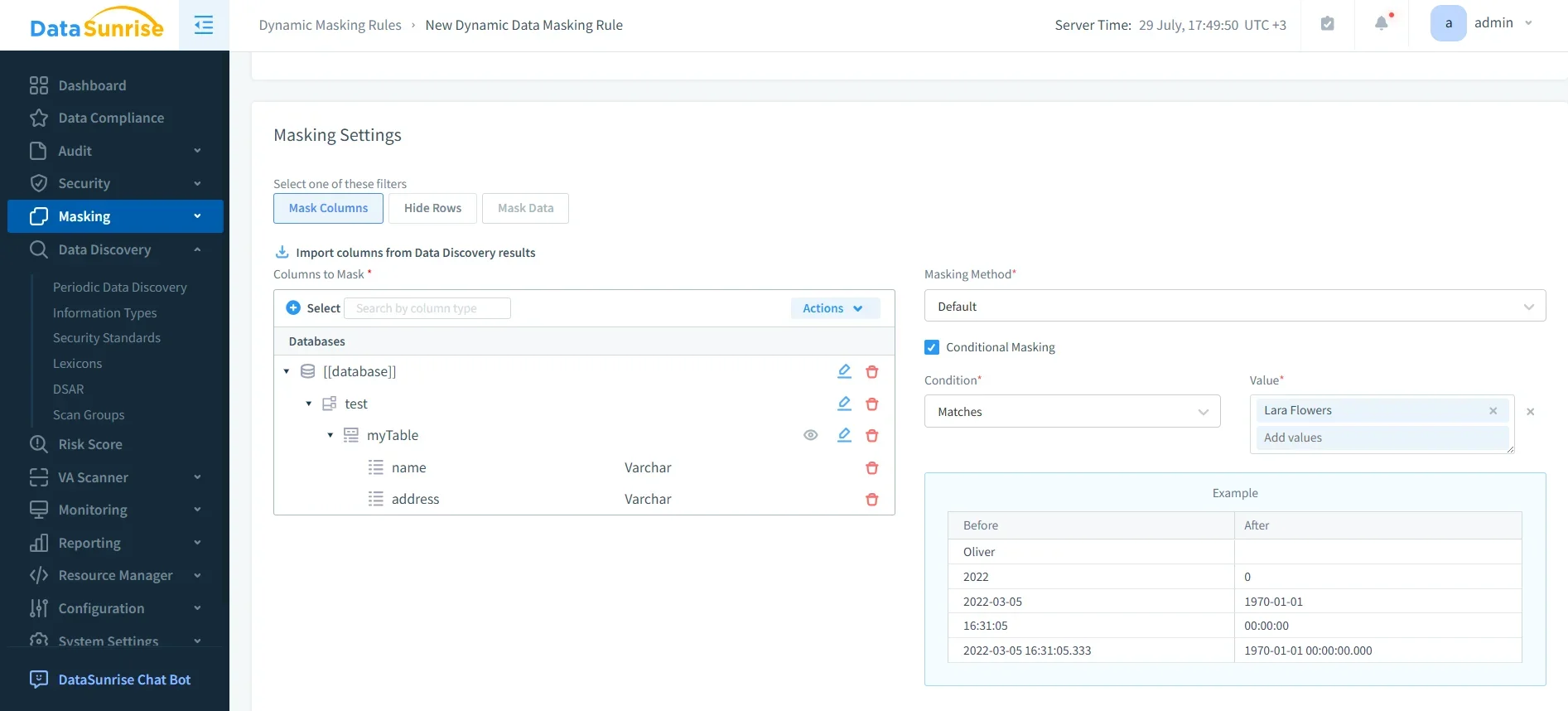
Audit-Ready Reporting
One of the biggest challenges of regulatory compliance is producing audit evidence. DataSunrise simplifies this by generating reports that are tailored for different regulatory frameworks. These reports can be scheduled or created on demand, providing regulators with clear proof of compliance. This functionality reduces audit preparation time dramatically and ensures organizations can demonstrate accountability whenever required.
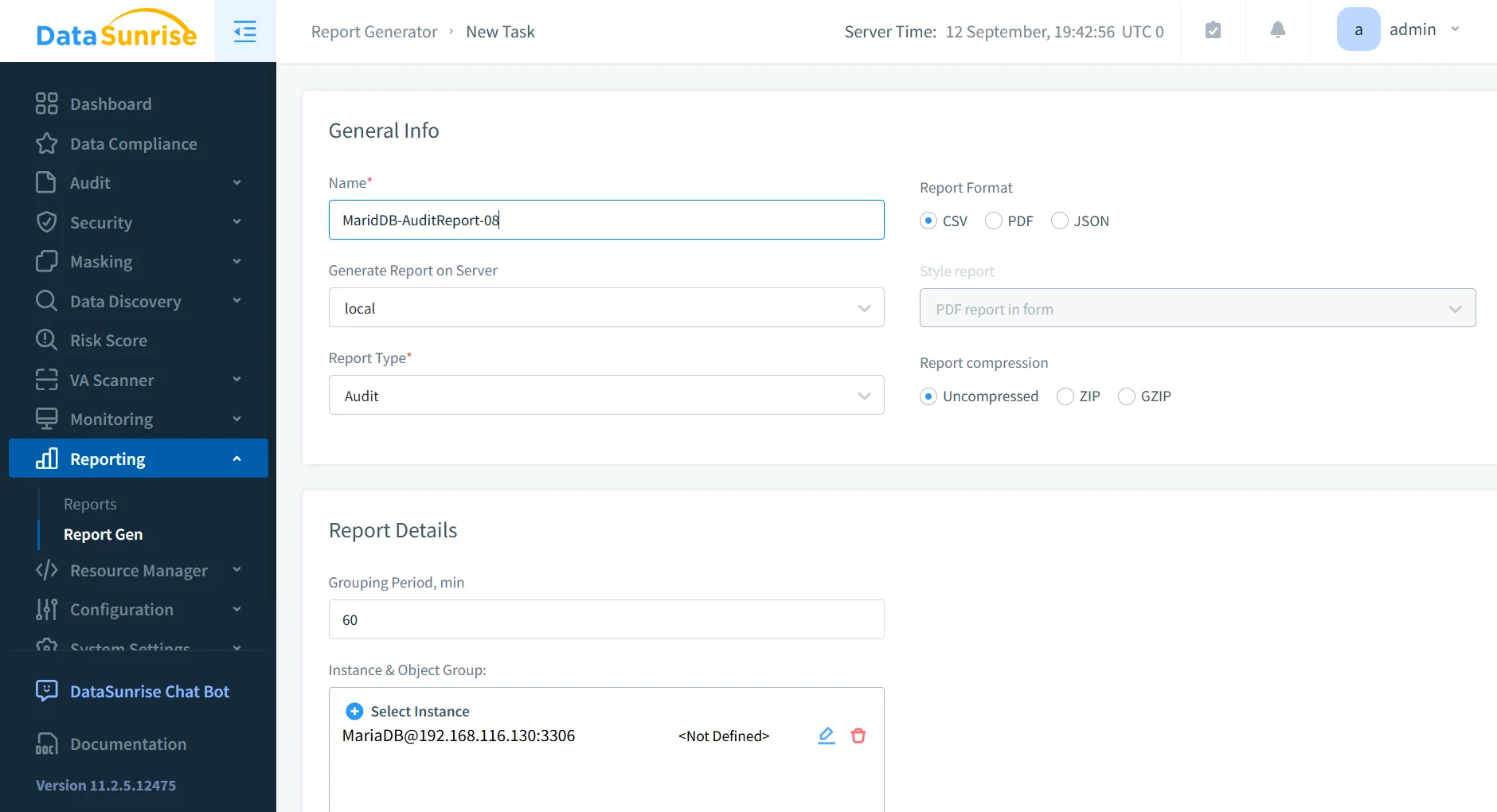
Real-Time Alerts
To ensure fast incident response, DataSunrise generates alerts for suspicious behavior such as abnormal queries, failed logins, or mass exports of data. Notifications can be sent via email, Slack, Microsoft Teams, or integrated directly with enterprise SIEM platforms. By delivering alerts immediately to the right teams, organizations reduce the window of risk and strengthen compliance monitoring practices.
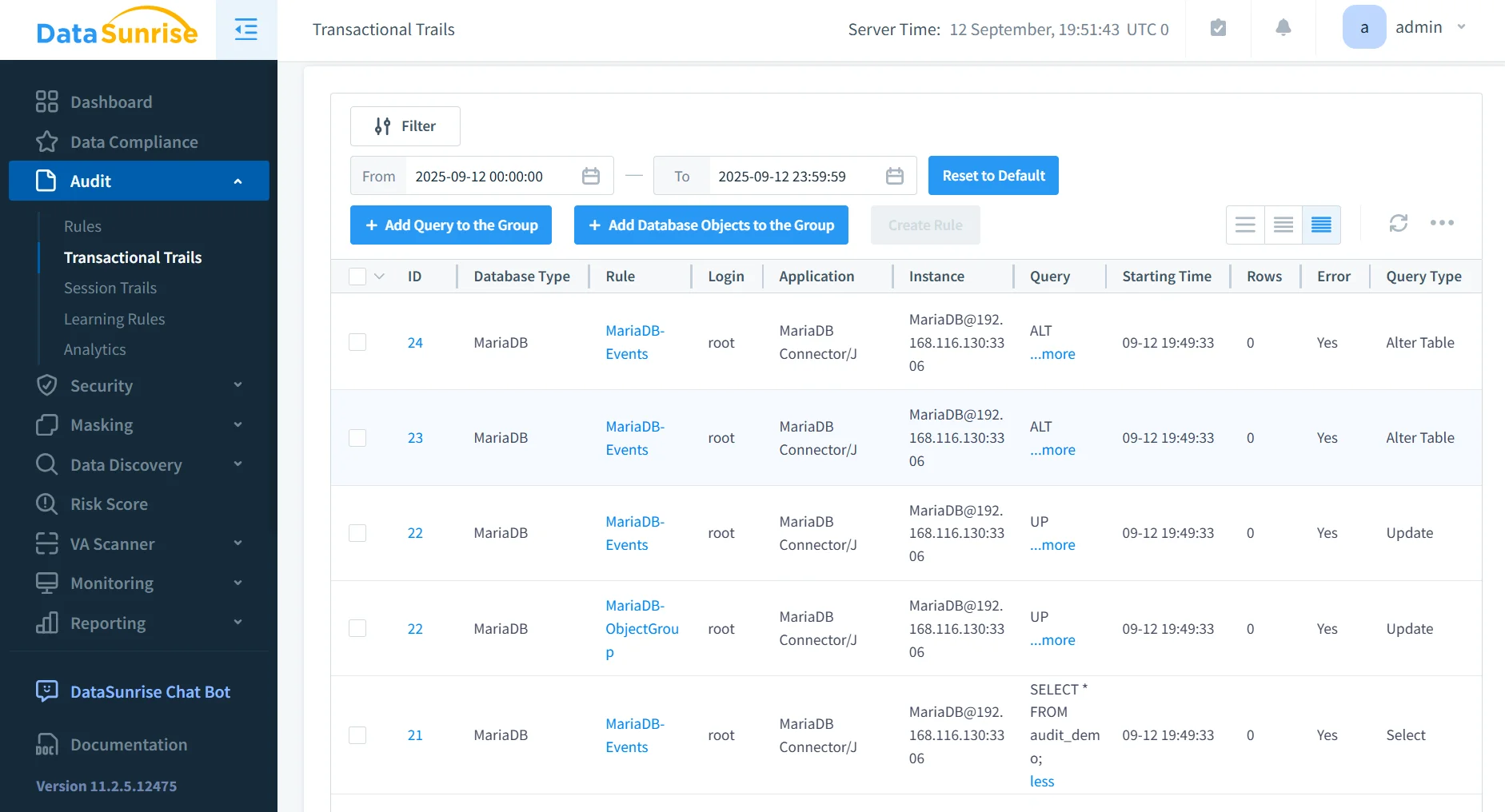
Sensitive Data Discovery
DataSunrise automatically scans MariaDB databases to locate sensitive information such as personally identifiable information (PII), protected health information (PHI), and payment details. Unlike manual searches, its discovery engine uses pattern recognition, contextual analysis, and OCR to detect data across both structured and unstructured sources. This ensures hidden or overlooked datasets are identified and properly secured before they pose compliance risks.
- Reduces manual effort by automating the search process
- Improves accuracy with pattern-based and context-aware detection
- Extends compliance coverage to unstructured sources like scanned files
- Ensures quick identification of new sensitive datasets
- Helps administrators enforce data masking and auditing policies faster
Compliance Autopilot
The Compliance Autopilot continuously aligns MariaDB environments with evolving regulations. Whenever new users, roles, or database objects are created, the system automatically applies the relevant compliance rules. It prevents compliance drift by monitoring changes and updating policies as needed. This reduces the administrative burden and ensures organizations remain aligned with GDPR, PCI DSS, SOX, and HIPAA requirements without constant manual updates.
- Automatically applies compliance policies to new users and tables
- Reduces administrator workload through automated alignment
- Detects compliance drift before it creates audit risks
- Keeps systems up to date with changing regulations
- Ensures audit readiness with minimal manual intervention
Learn more about automation in database compliance management.
Centralized Monitoring
DataSunrise consolidates monitoring across multiple MariaDB instances into a single dashboard. Administrators can view activities across hybrid and multi-cloud environments in real time, eliminating silos and providing a unified compliance perspective. This centralized monitoring also allows correlation of suspicious events, making it easier to detect insider threats or coordinated attacks that may otherwise go unnoticed.
- Provides a single-pane-of-glass view for all MariaDB deployments
- Correlates events across environments for better incident detection
- Reduces complexity by unifying on-premises and cloud monitoring
- Supports integration with SIEM tools
- Improves visibility into regulatory compliance status at scale
Business Impact of MariaDB Regulatory Compliance
Comparison Table
| Feature | Native MariaDB Governance | DataSunrise for MariaDB |
|---|---|---|
| Sensitive Data Discovery | Manual identification via queries and schema reviews | Automated discovery with patterns, dictionaries, and OCR |
| Data Masking | Views or stored functions, requires manual coding | Real-time dynamic masking with role-based rules |
| Compliance Alignment | Manual rule updates for new standards | Compliance Autopilot with GDPR, HIPAA, PCI DSS, SOX templates |
| Monitoring | Instance-level logs, limited visibility | Centralized monitoring across 40+ platforms |
| Alerts | Basic error logs, manual checks | Real-time alerts via email, Slack, Teams, SIEM |
| Reporting | Manual exports and query-driven reports | Automated audit-ready compliance reporting |
| Cross-Platform Governance | Limited to MariaDB deployments | Unified governance across multi-cloud and hybrid environments |
For broader perspectives, explore how Database Activity Monitoring complements audit trails and masking for enterprise-scale compliance.
Conclusion
Regulatory compliance is not optional for MariaDB deployments in industries under heavy oversight. While MariaDB includes baseline tools for access control and basic masking, these capabilities are limited for enterprise-scale compliance.
DataSunrise extends MariaDB by delivering sensitive data discovery, dynamic masking, automated compliance, centralized monitoring, real-time alerts, and audit-ready reporting.
With these capabilities, organizations achieve continuous alignment with frameworks such as GDPR, HIPAA, SOX, and PCI DSS, while maintaining operational efficiency.
Protect Your Data with DataSunrise
Secure your data across every layer with DataSunrise. Detect threats in real time with Activity Monitoring, Data Masking, and Database Firewall. Enforce Data Compliance, discover sensitive data, and protect workloads across 50+ supported cloud, on-prem, and AI system data source integrations.
Start protecting your critical data today
